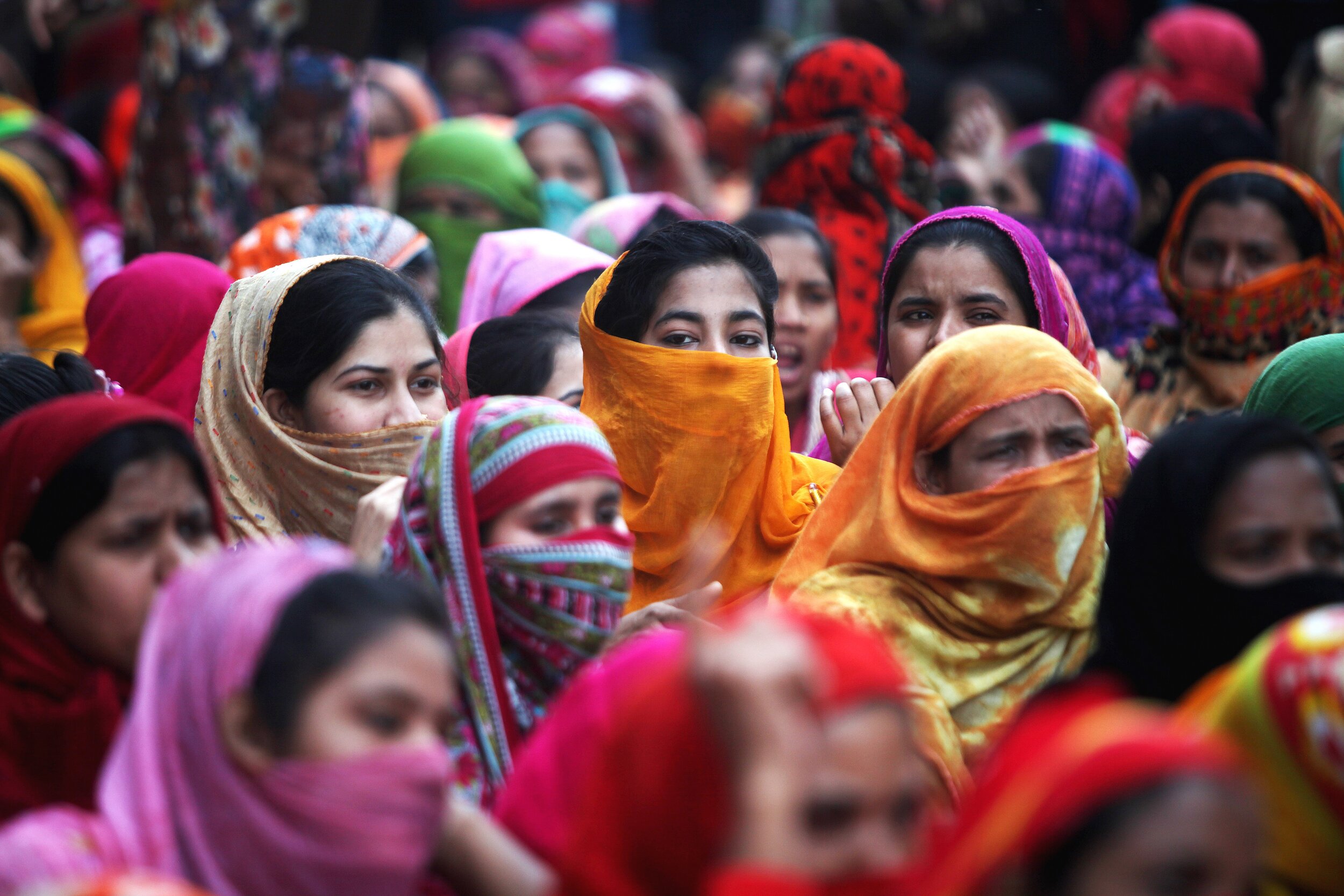Fast Fashion Isn’t Just an Environmental Issue; It’s a Feminist One
If you won’t lessen your clothing consumption for the environment, consider doing it in solidarity with the female workers.
While fast fashion can be convenient, it is also extremely harmful to those who must devote their lives to create these garments, especially in overseas countries. Source: Pexels: Tuur Tisseghem
There’s a growing awareness of fast fashion — the business model that rapidly generates on-trend clothing and accessories for consumers at a generally low price. More understanding of fast fashion has shown that companies like Forever 21 and Zara who practice this model, fail to address the subsequent environmental consequences, including increasing emission of greenhouse gasses and depleting non-renewable resources. However, more discussions need to address that fast fashion isn’t just a climate change issue; it’s a feminist one as well.
Garment workers are 80% women, between the ages of 18 and 35. In order to meet the continuously-growing demand of fast fashion, companies choose to ensure efficiency at the expense of workers and safety conditions. A 2015 study by the American Apparel & Footwear Association (AAFA), found that the U.S. imported 97% of clothing from overseas countries such as China, Bangladesh, Vietnam, India, and Indonesia – all countries where feminist ideologies aren’t as common as in the U.S.
Employers take advantage of these women, who rely on their job to provide for their family. Therefore, they fear speaking out against the abusive factory conditions they endure daily. Those in positions of power, typically men, take advantage of society’s standards. A 2019 Oxfam report that found that 1 in 4 Bangladeshi garment workers had disclosed some form of abuse in the study, a figure that is likely also underreported.
Since these women must keep these jobs to survive, they experience appalling and often dangerous working conditions. Garment workers overseas typically receive less than minimum wage, with the Oxfam report finding that 0% of Bangladeshi garment workers and 1% of Vietnamese garment workers earned a living wage in 2019.
Yet, employees are still required to work long hours. Sometimes employees work up to 60 hours per week or more, and in factories that disregard safety regulations. In the 2012 Pakistani garment factory fire alone, 314 workers died because they were trapped behind locked doors and metal-grilled windows designed to prohibit workers from leaving before the end of their shift. A year later in Bangladesh, the eight-story Rana Plaza building collapsed, killing 1,134 people. Workers had noticed a large crack in the foundation the day prior and asked not to return until fixed, yet management insisted they work.
Aggression and sexual harassment are also extremely common among female workers in overseas factories, as 68% of Cambodian female garment workers having reported feeling uncomfortable or unsafe at work. In Vietnam, 34% of female garment workers have experienced physical harassment, such as kissing, touching, or hitting.
Though protests and efforts to unionize and protect workers against meager wages, unsafe working conditions, and manipulation have been made, they are often ignored. Women in higher-income countries like the U.S. are staying up on the season’s trends, while women overseas are struggling to stay alive. As women and as feminists, we must work to achieve equal rights for all individuals, especially those that put hours into the clothes we don’t think twice about wearing. We can help these women by cutting down on fast fashion purchases.
According to a 2017 survey by Hubbub, a London sustainability firm, 41% of 18-25 year olds “feel pressured to wear a different outfit every time they go out.” With image-based social media platforms like Instagram making it easier than ever to allow young adults to hyper-fixate on their outfits, fast fashion can be a tempting solution.
I realize cutting it out completely can be difficult at first. But even lowering the amount of clothes you purchase for a month can help. A 2019 survey by Barnado's charity, found that British people will spend up to £2.7 billion on clothes during the summer, even just to wear them once. This is £2.7 billion that didn’t have to be spent.
The most eco-friendly (and cheapest) way to lower your clothing consumption is to work with what you already have. Look through your clothes to find pieces you haven’t worn in a while and see if you can rework them to give them a second life. It could be patching up holes in a pair of jeans you haven’t worn in months or dyeing an old white t-shirt with vegetables and spices. You can also always bring clothes to a tailor to have them repaired if you don’t consider yourself to be great at crafting and sewing.
When you’re willing to give away some of your clothes, another free alternative is to try swapping with your friends, family, or roommates. More and bigger clothing swap events occurred pre-COVID-19, but for now, you can ask if those in your pod are willing to trade items.
If you need to buy something new, consider buying second-hand clothing first. It may be more difficult to thrift shop in-person right now, but online platforms like Depop, thredUP, Poshmark, and Mercari can ship clothing, accessories, and even home decor. Although it may take more time to find the items you want or like, you’re not directly supporting the brands that fuel the exploitation of female workers and you’re participating in sustainable efforts.
I want to be clear that the intention of this article is not to berate and shame those who partake in fast fashion out of necessity, but rather highlight its impact on all women and provide suggestions on how to improve the situation. I completely understand the appeal of fast fashion; it’s cheap, fast, and trendy. However, I urge readers, especially those who identify as feminists, to consider the facts and evaluate the repercussions of your purchases.
